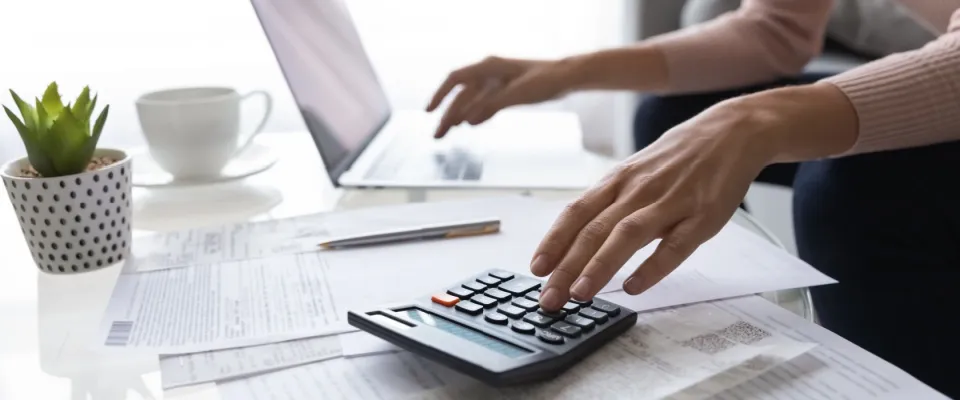If you’re getting ready to sign a new apartment lease agreement, congratulations! That’s a big step. But before you get the keys, knowing what you’re agreeing to is crucial. Whether you’re renting for the first time or reviewing your lease before renewing it, understanding the fine print can help you avoid unexpected fees, potential disagreements with your landlord, or even eviction.
Lease or rental agreements might seem packed with legal language, but most of it is straightforward once you break it down. Below you’ll find the key terms and clauses you’ll likely find in an apartment lease agreement.
Lease term | Lessee and lessor | Lease renewal | Month-to-month lease | Security deposit | Rent | Rent increases | Cosigner | Due date | Grace period | Utilities | All-bills-paid apartment | Sublease | Right to entry | Maintenance and repairs | Renters insurance | Pet policy | Penalties | Termination | Eviction
Lease term
The lease term is the length of time you agree to live in the apartment. Most lease terms have a fixed duration. The most common lease term is 12 months, but some apartments offer short-term leases (six months) or a month-to-month lease. Always check the lease’s start and end dates.
Lessee and lessor
The lessee is you, the person renting the apartment. The lessor is the landlord or property manager renting it to you. Some agreements may use terms like “landlord” and “resident” instead.
Lease renewal
This clause covers what happens when your lease ends. Some apartments automatically switch to a month-to-month lease unless you renew, while others require you to sign a new agreement. Don't miss your lease renewal deadline. Set a calendar reminder for it if needed.
Month-to-month lease
A month-to-month lease means you aren’t locked in for a full year. Instead, your lease renews every month automatically. While it’s more flexible, this type of lease can also mean that your landlord or property manager may raise rent or end the agreement with 30 days' notice.
Security deposit
You pay this amount upfront to cover any damage or unpaid rent. It's usually refundable if you leave the place in good shape. The agreement should explain how much the deposit is, when you’ll get it back, and what may cause deductions. Some leases may deduct a cleaning fee from the security deposit if the renter does not want to find their own service at the end of their lease.
Rent
The amount you agree to pay each month to live in the apartment. Your apartment lease agreement should clearly state how much the rent is, when it’s due, and the accepted rent payment methods (online, by check, direct deposit, etc.). You’ll also want to check if the rent includes anything extra, like utilities or parking.

Rent increases
This section tells you how much and how often your landlord can raise the rent. Changes in rent usually happen at lease renewal time. If you’re on a month-to-month lease, increases may happen more frequently based on the agreed notice.
Cosigner
Your landlord might ask for a cosigner if you don’t have enough income or credit history. This person acts as a third party on your lease, agreeing to cover your rent if you can’t. Often, a cosigner is a parent or close relative.
Due date
Your rent’s due date is typically the 1st of each month, but there may be other due dates upon agreement. Always double-check your lease, as this information is essential to ensure you meet the clauses of your contract. Paying late could cost you (see “Penalties” below).
Grace period
Some leases offer a grace period after the rent due date (usually a few days) before late fees kick in. These extra days give you a small cushion, but don’t rely on it too often, as it may still affect your rental history.
Utilities
These services include water, electricity, gas, trash pickup, and internet. Your lease should clearly state which utilities you’re responsible for and which (if any) are included in the rent. Make sure utilities are set up before you move into your new apartment. For example, start arranging electricity and internet at least a few days before your move-in date if they’re not already provided.
All-bills-paid apartment
In an all-bills-paid apartment, your rent includes utilities. These types of contracts can make budgeting easier, but the rent is usually higher. Double-check which utilities are covered in your lease agreement so there are no surprises.
Sublease
A sublease happens when you let someone else live in your apartment and pay rent, usually while you’re still legally responsible. Some lease agreements allow this with permission, while others don’t. Always check this clause if you're planning to travel or move temporarily.
Right to entry
This clause explains when and why your landlord can enter the apartment, like for repairs or inspections. They usually need to give 24 to 48 hours’ notice unless it’s an emergency.
Maintenance and repairs
This part outlines what the landlord is responsible for fixing (for example, plumbing or appliances) and what you need to handle (for example, changing light bulbs or air filters). This section should also outline who to call and how to request repairs, but if it doesn’t, ask your landlord or property manager when signing the lease.
Renters insurance
Some apartment lease agreements require you to have renters insurance. This protects your personal belongings in case of fire, theft, or other issues. It can also help cover medical or legal fees in case somebody has an accident in your apartment. Some landlords require liability coverage, but it's still a smart and often affordable option even if they don't.
Pet policy
Do you have a pet or are you planning to get one? The lease will spell out if pets are allowed, what types, breeds, or sizes of animals you can have in the apartment, and whether you need to pay extra fees or deposits.
Penalties
Late rent? Unauthorized pet? Breaking the lease early? Penalties cover the fees or consequences for violating the agreement under various conditions. Nobody likes paying extra, so know what actions can trigger these charges.
Termination
This clause covers how and when you or your landlord can end the lease early. It typically requires written notice and may include early termination fees. Be sure to read this carefully before planning to move out early.
Eviction
Eviction means being legally removed from your apartment. It’s a last resort if you don’t pay rent, break major lease rules, or cause serious problems. Your lease will outline the conditions that can lead to eviction and the process your landlord must follow. Some agreements may also include conflict resolution procedures to try before pursuing eviction.

Final tip
Before signing your apartment lease agreement, read the entire document thoroughly, ask questions if something’s unclear, and don’t be afraid to negotiate small things (such as your move-in date or pet deposit). Being informed and prepared is the best way to enjoy your experience renting.




